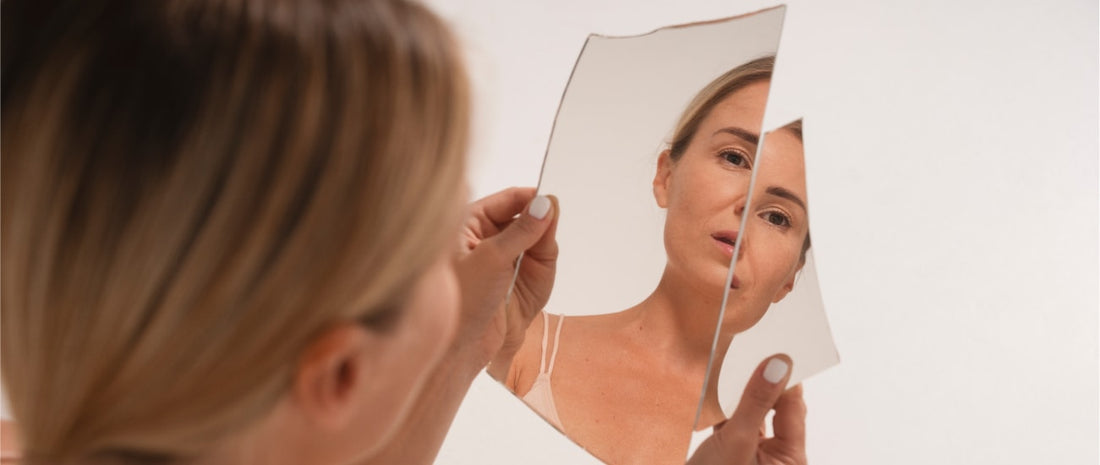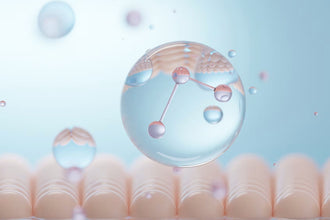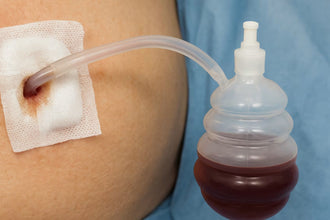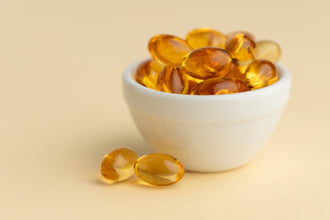
Top 5 Most Common Skin Concerns & What To Do
Common skin concerns are...common. In this battle, you’re not alone. It might feel like an uphill or hopeless struggle, but there is a lot you can do.
To promote the prevention of many of the common skin conditions requires some root cause understanding. Below we discuss the most common skin issues & some brief tips.
1. ACNE
Acne is the most common skin condition in the United States. Just among women, acne affects nearly 40+ million from all age groups.
Acne occurs when skin pores get clogged with dirt, dead skin cells, sebum, and bacteria. It creates a build-up and leads to that inevitable bump.
WHAT TO DO: Wash and tone your face every day using hot/warm water to open the pores and cold water to close them when finished.
Use cleansers with salicylic acid for preventative needs. For spot acne treatment, use benzoyl peroxide. Lastly, using products with Alpha Hydroxy Acids (AHAs) help clear pores & reduce dead cell build-up, thus preventing pore-clogging.
2. WRINKLES & FINE LINES
As discussed, aging takes a toll on our skin. Aside from becoming more fragile, thin, and depleted of natural collagen. It also becomes more susceptible to dehydration and environmental damage, resulting in creases and fine lines.
But not all wrinkles are caused by age and gravity.
WHAT TO DO: Look for a product with ingredients that prevent free radical damage and promote collagen production.
For example, beauty from within supplements like HealFast Rejuvenate should contain Vitamins C, A, E, to decrease the depth of fine lines and wrinkles.
Supplement with well-studied collagen, hyaluronic acid, and vitamins and minerals geared explicitly towards skin rejuvenation. The science here is well supported!
Topically, the most effective anti-aging creams are typically vitamin A derivatives, such as retinol/retin-A.
Lastly, it's also important to use sunscreen year-round and lotions with antioxidants to protect your skin from UV ray damage.

3. DARK SPOTS (a.k.a., HYPERPIGMENTATION)
Hyperpigmentation is generally harmless and affects all skin types, sexes, ethnicities, and ages. Dark spots occur when the skin creates too much melanin (a pigment that controls skin color) in certain concentrated places. This can result in dark, flat patches that can vary in size and color.
WHAT TO DO: Look for topical products that contain Kojic acid, Nicotinamide, Hydroquinone, and Arbutin. Consider using products that have chemical exfoliants like AHAs and retinol. These are effective at lightening dark areas and evening out your skin tone. Be careful; some of these products can be harsh when you first start. So start slowly.
As always, don’t forget to use sunscreen every day. It can prevent new dark spots from forming or stop the older places from getting any darker.
4. ROSACEA
Rosacea affects nearly 14 million Americans. Some don’t even know they have it!
Generally, rosacea presents itself as facial redness, flushing, dilated capillaries, and skin breakouts.
In more severe cases, the nose and the surrounding areas can become enlarged, oily, and swollen.
WHAT TO DO: Rosacea is a chronic condition that can be mitigated by anti-inflammatory products designed to help irritated skin. Look for topical anti-inflammatory creams, alter your diet, or use a supplement where needed.
Rosacea can be exacerbated with changes in weather, including Sun exposure, wind, and cold weather, as well as increased consumption of alcohol and spicy foods. Trigger avoidance is essential, while Sun protection is equally important.
In more severe circumstances, seeking help from a dermatologist is often recommended.
5. ECZEMA (a.k.a., ATOPIC DERMATITIS)
Atopic dermatitis, or eczema, is where the skin becomes dry, rough and has scaly skin patches located on the scalp, face, and body.
Eczema is more common in children but also impacts adults. If you had the disease as a child, you might get milder symptoms as an adult.
The exact cause of eczema is unknown. But it’s likely a combination of hereditary, diet, hormone, and environmental factors.
WHAT TO DO: Prevent flare-ups by avoiding products that contain harsh chemicals or remove your natural oils.
Be sure to moisturize often, especially when getting out of the shower or after shaving.
There are also special topicals and supplements (like Vitamin D) that might help resolve the problem.
While most people will encounter some of these skin conditions in their lifetime; knowing the source and how to treat them can make them almost entirely go away in many cases.
Where simple changes to diet, hygiene techniques, or skincare products don't work, speaking with a dermatologist can help when more powerful alternatives are needed.
We hope you found this article interesting and useful. Let us know if you have any questions or comments in the section below.
~The HealFast Medical Team















